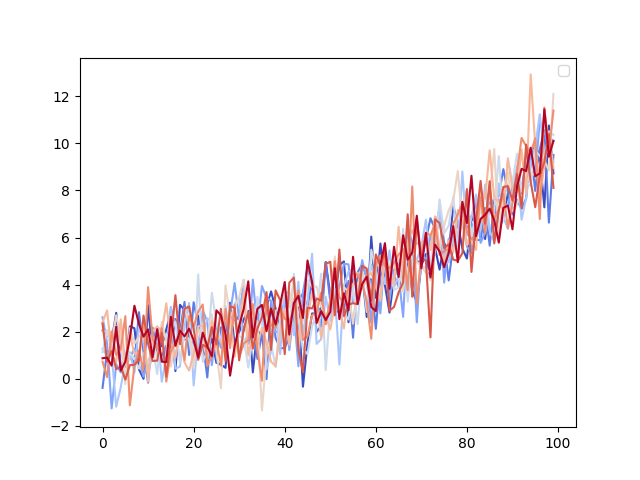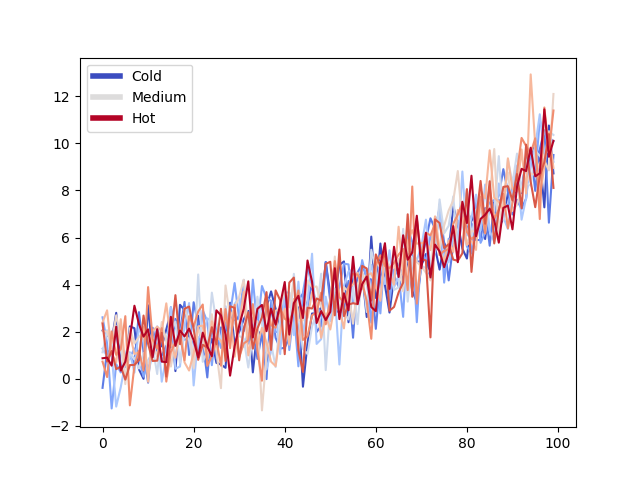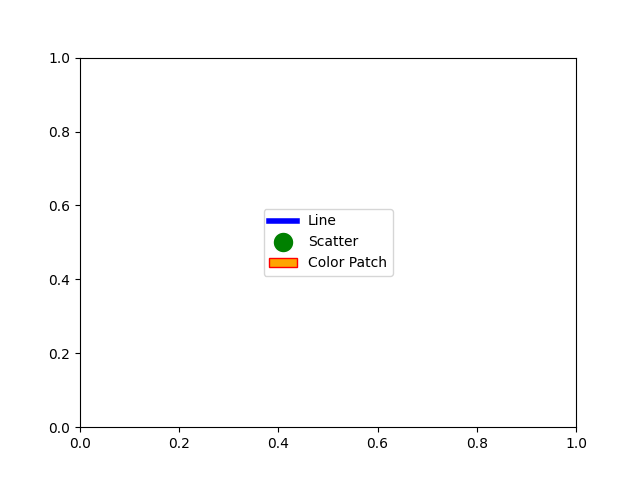Note
Go to the end to download the full example code
Composing Custom Legends#
Composing custom legends piece-by-piece.
Note
For more information on creating and customizing legends, see the following pages:
Sometimes you don't want a legend that is explicitly tied to data that
you have plotted. For example, say you have plotted 10 lines, but don't
want a legend item to show up for each one. If you simply plot the lines
and call ax.legend(), you will get the following:
import matplotlib.pyplot as plt
import numpy as np
import matplotlib as mpl
from matplotlib import cycler
# Fixing random state for reproducibility
np.random.seed(19680801)
N = 10
data = (np.geomspace(1, 10, 100) + np.random.randn(N, 100)).T
cmap = plt.cm.coolwarm
mpl.rcParams['axes.prop_cycle'] = cycler(color=cmap(np.linspace(0, 1, N)))
fig, ax = plt.subplots()
lines = ax.plot(data)
ax.legend()

No artists with labels found to put in legend. Note that artists whose label start with an underscore are ignored when legend() is called with no argument.
Note that no legend entries were created. In this case, we can compose a legend using Matplotlib objects that aren't explicitly tied to the data that was plotted. For example:

There are many other Matplotlib objects that can be used in this way. In the code below we've listed a few common ones.
from matplotlib.lines import Line2D
from matplotlib.patches import Patch
legend_elements = [Line2D([0], [0], color='b', lw=4, label='Line'),
Line2D([0], [0], marker='o', color='w', label='Scatter',
markerfacecolor='g', markersize=15),
Patch(facecolor='orange', edgecolor='r',
label='Color Patch')]
# Create the figure
fig, ax = plt.subplots()
ax.legend(handles=legend_elements, loc='center')
plt.show()
